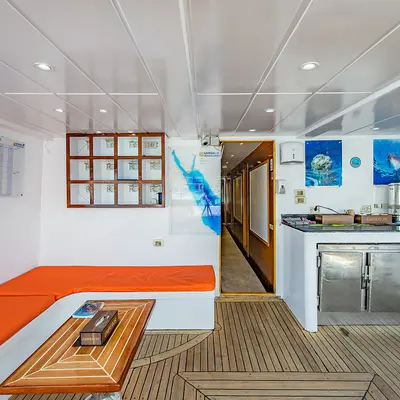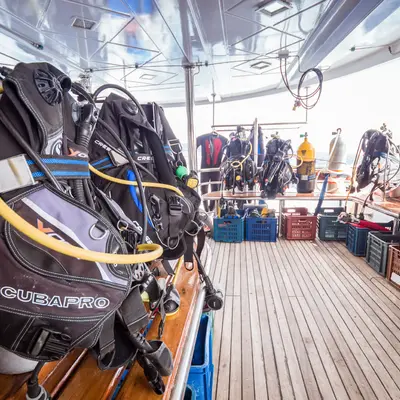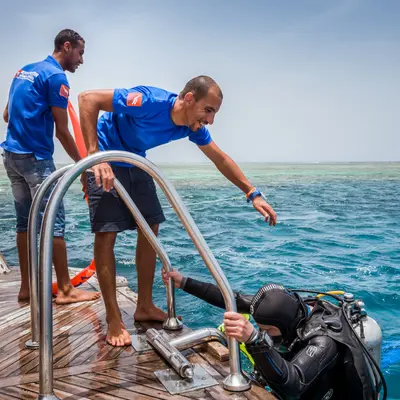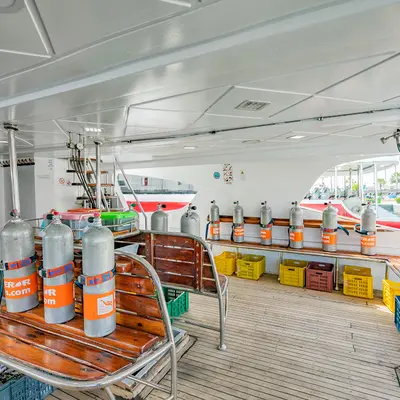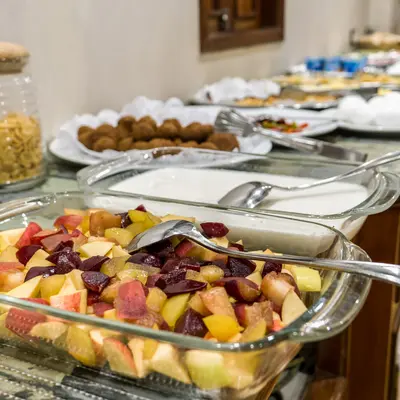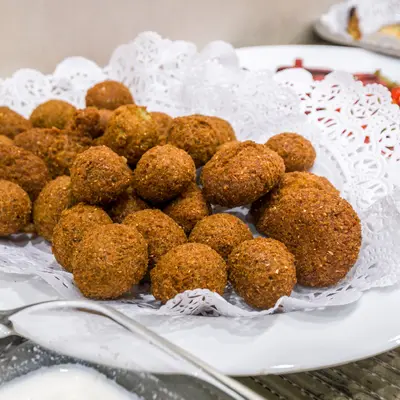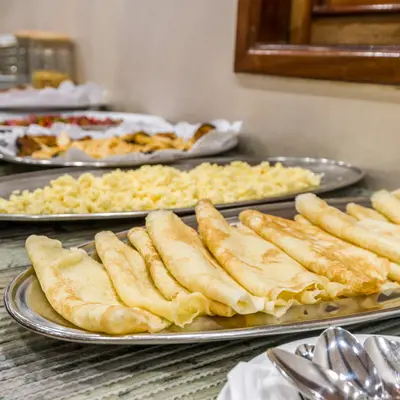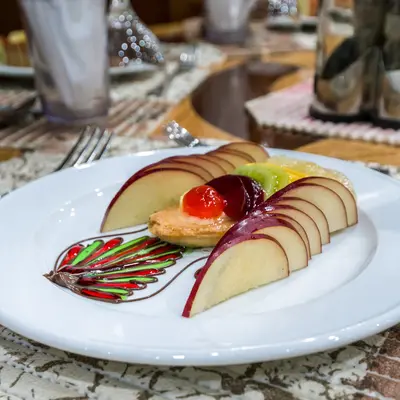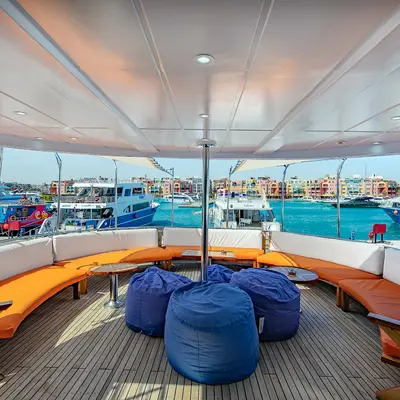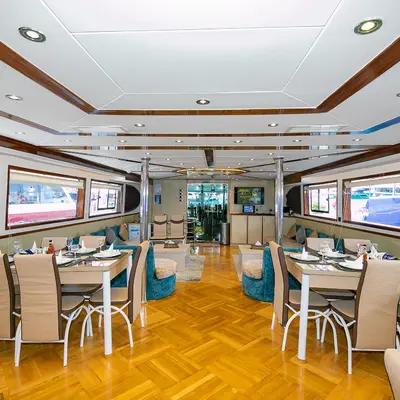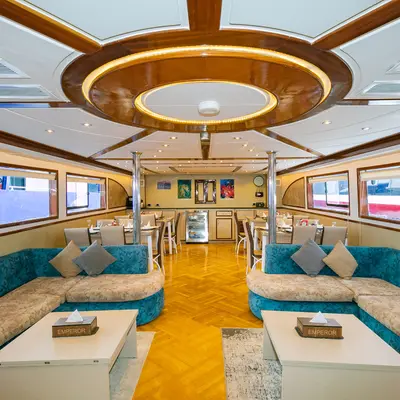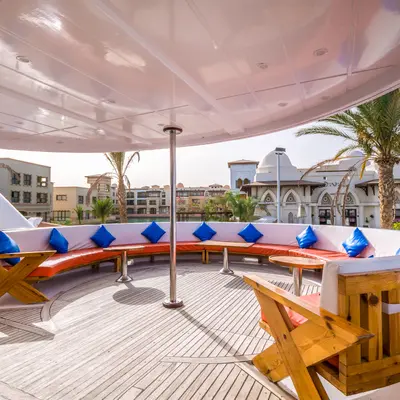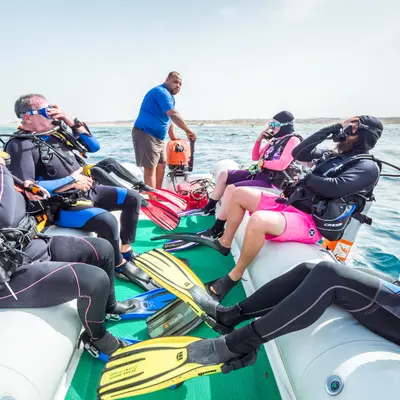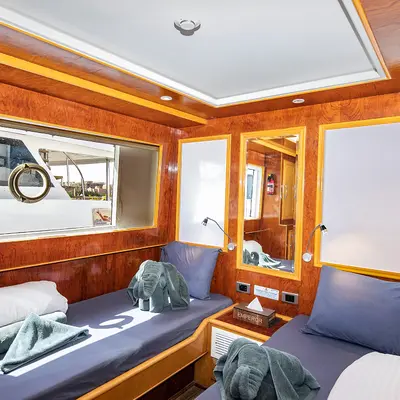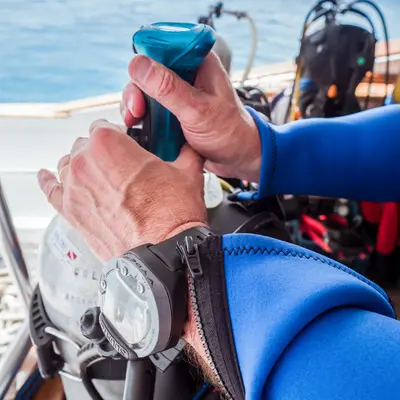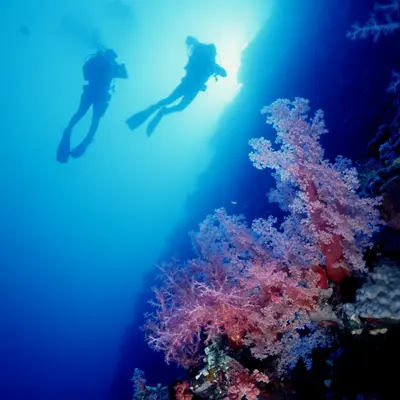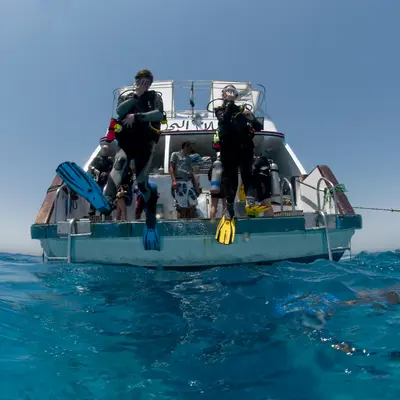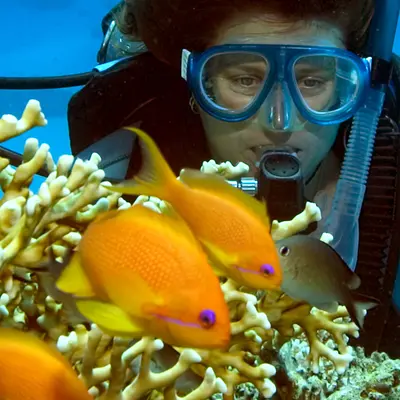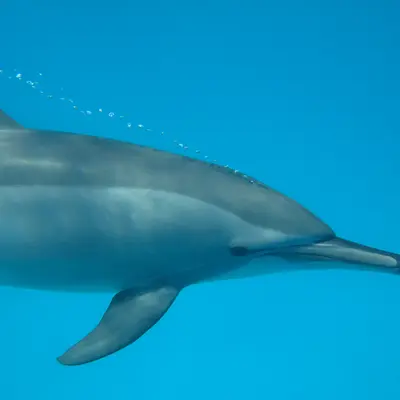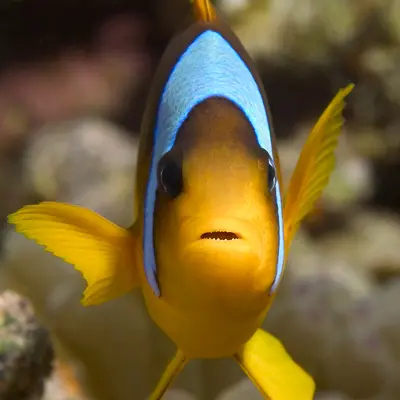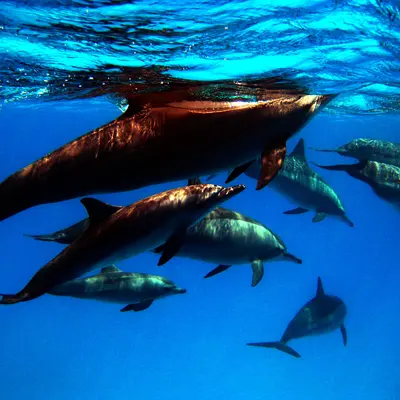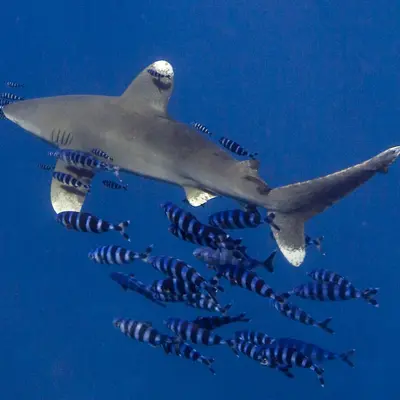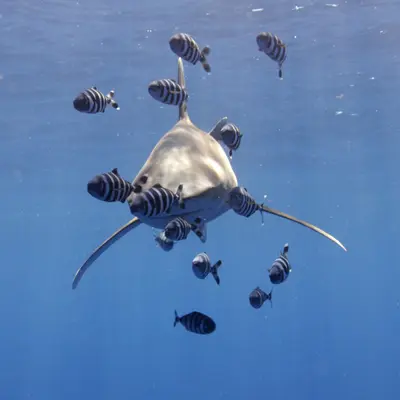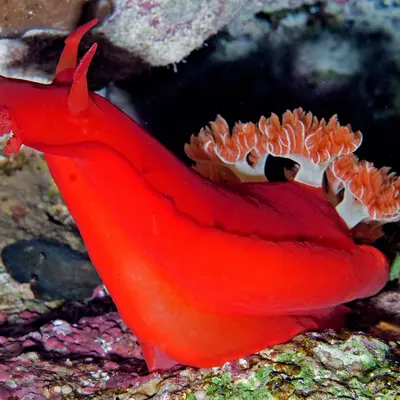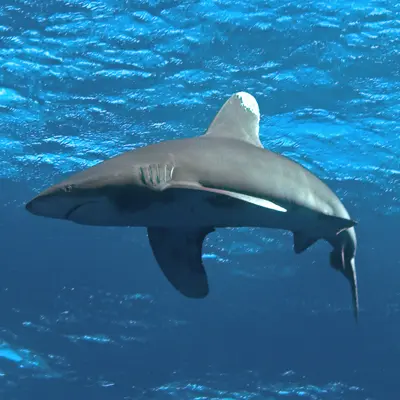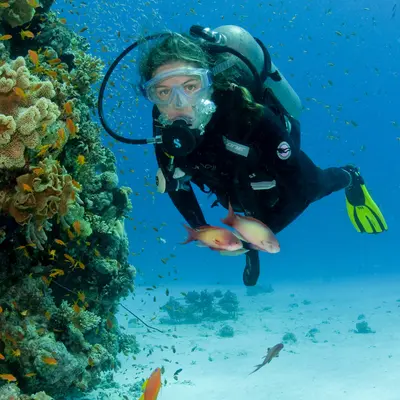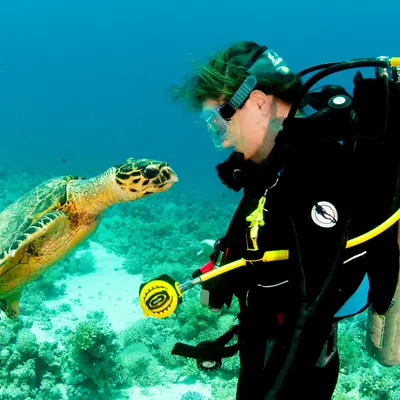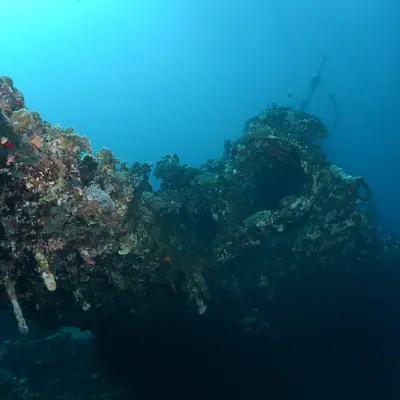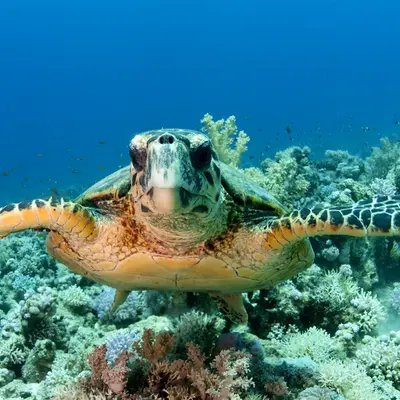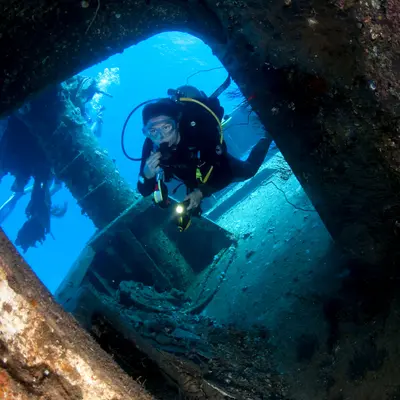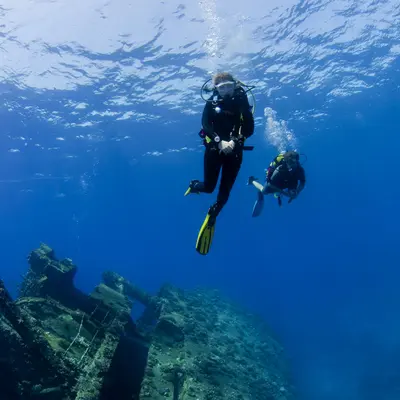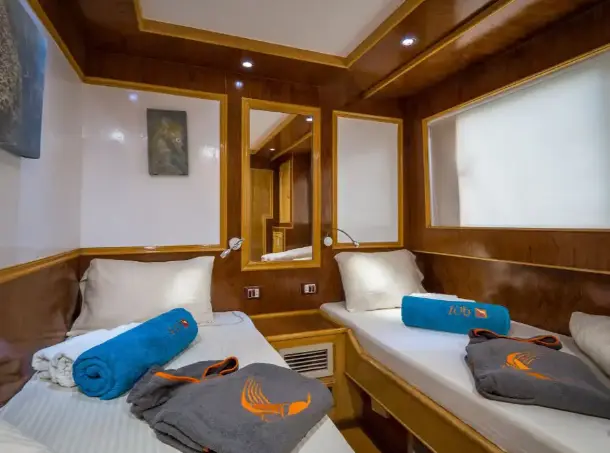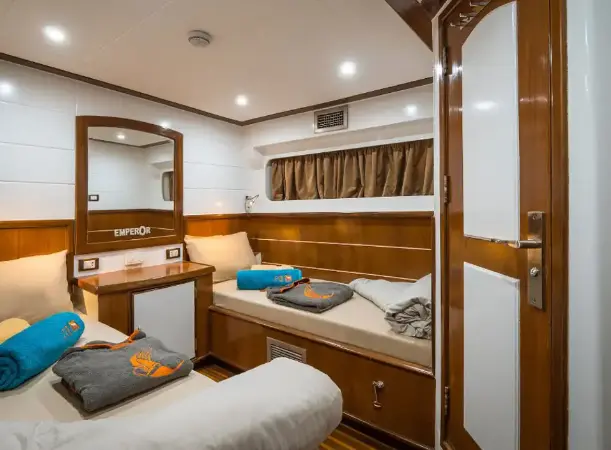The week-long tours depart from Hurghada or Marsa Ghalib, depending on the route, and lead to the most famous dive sites in the Red Sea - from legendary wrecks in the north to the remote dive sites around St. Johns in the deep south.
Experience intense shark encounters on up to 21 dives per week in the southern regions of the Red Sea. Free Nitrox, WLAN and a glass of wine with dinner are included and ensure comfort even between dives.
This website uses Google Maps to embed map material. Please note that your personal data may be collected in the process. To view the Google Maps map, please agree that it is loaded from the Google server.
The Emperor Asmaa is part of the renowned Emperor fleet and has been specially designed to meet the needs of divers. It offers space for up to 20 guests in 10 cabins spread over the lower and upper decks. Each cabin has its own shower/WC, individually adjustable air conditioning, ample storage space and two towels per person.
Cosy lounge areas on deck, a modern saloon and a spacious dining area with buffet - consisting of a mix of local and international cuisine - round off the experience. On the sun deck, beanbags and loungers invite you to relax between dives.
On the Emperor Asmaa, all fees for harbours, national parks and fuel are included in the cruise price. There are no hidden costs - transparency and quality take centre stage.
The spacious dive deck at the stern offers plenty of space for equipment and dive preparations, and the experienced crew ensures safety, service and a relaxed atmosphere on board.
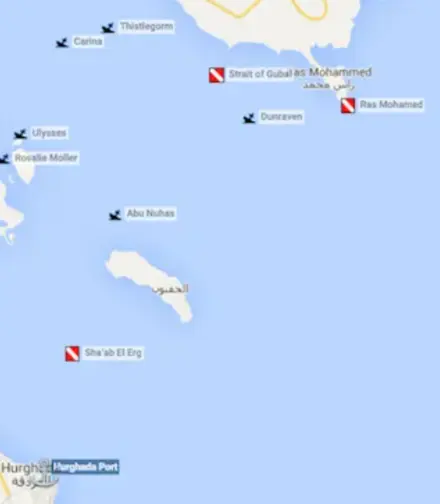
Reef and Wreck Tour
The best of both worlds, where you can visit famous wrecks in the northern Red Sea and enjoy stunning reef dives.
The famous horseshoe-shaped reef of Shaab El Erg is a perfect example of the reefs offered on this cruise, with its beautiful hard coral garden and the possibility of seeing dolphins.
Abu Nuhas has four famous wrecks: Giannis D, Carnatic, the Lentil Wreck and the Tile Wreck, all of which offer spectacular dives and plenty of fish life.
Night dives can be excellent as the island of Gubal offers a sheltered anchorage for the night. A small wreck at a depth of 8-10 metres makes for a spectacular night dive with lionfish, scorpionfish and the resident giant moray eel as well as the wreck of the Ulysses and the Rosalie Möller. We continue on to the Kingston , which lies at Shag Rock; the Carina , which lies near Sha'ab Ali, and the Dunraven at Beacon Rock in Ras Mohamed National Park. And finally, the most famous wreck in the Red Sea, the Thistlegorm, near Sha'ab Ali.
The SS Thistlegorm was sunk in 1941 after being bombed by the German Luftwaffe while delivering a cargo of ammunition and other war material to British troops in North Africa. The same fate befell the Rosalie Möller with a cargo of coal just two days later.
During your stay in Ras Mohamed, you may have the opportunity to take a dive at Shark Reef, a steep wall that plunges into the blue. From here, the boat heads back towards Hurghada.
In between the wreck dives, you will also visit the reefs of the Strait of Gubal, the Gulf of Suez and those north of Hurghada. A variety of deep walls and hard coral gardens with an abundance of reef fish make them well worth a visit.
All wrecks are dependent on the experience and weather conditions of the divers.
Check-out begins early morning on the day of disembarkation, with all guests departing by noon.
Marine life: Dolphins, lionfish, scorpionfish, sharks, turtles, barracudas, moray eels, nudibranchs
The last dive takes place on the penultimate day of the trip. Divers are advised to wait 24 hours after the last dive before flying.
Sample routes and maps are for illustrative purposes only . The exact route and sites visited may change depending on local regulations, guest experience, weather and logistics and are at the captain's discretion.
Double cabin, Single, Lower deck
- 2 single beds
- Adjustable air conditioning
- en-suite bathroom
- max.2 guests
Double cabin, single, upper deck
- 2 single beds
- Adjustable air conditioning
- en-suite bathroom
- max.2 guests
Included: VAT, harbour fees, national park fees, fuel surcharge, hotel transfers, soft drinks, tea & coffee, drinking water, wine with dinner, special dinner, snacks, full board (all meals), nitrox, dive packages, additional dives, towels for use on deck, cabin towels, WiFi.
Optional extras: travel insurance, diving insurance (7 EUR per day), tips (75 EUR), airport transfer (12-58 EUR per activity), alcoholic drinks (3.50 EUR), rental equipment, Nitrox course (160 EUR), private dive guide (599 EUR), diving courses (69-250 EUR).
Prices for rental equipment
Rental equipment is available on this ship. Please indicate what you need on the booking form. Details below of what is included and the additional prices.
- 15 litre bottles 35-46 EUR
- Regulator 83 EUR
- BCD 83 EUR
- Fins 21 EUR
- Mask 14 EUR
- Nitrox bottle included
- Signal buoy 14 EUR
- Torch 48 EUR
- Dive computer 14 EUR
- Complete equipment (with: regulator, BCD, fins, mask, signal buoy, dive computer, wetsuit) 206 EUR
- Wetsuit 55-83 EUR
- Air temperature: Warm all year round with average temperatures between 18 °C in January and 32 °C in August.
- Water temperature: Stable temperatures between 22 °C in February/March and 29 °C in August, ideal for diving.
- Rainfall: Almost no rainfall all year round, typical of the region's desert climate.
Egypt is located in north-east Africa and connects Africa with Asia via the Sinai Peninsula. The Red Sea stretches along the east coast of Egypt and is an important maritime region with rich marine life, clear waters and unique coral reefs.
Population & Religion
Egypt has over 100 million inhabitants, the vast majority of whom are Muslim (mostly Sunni). There are also small Christian minorities, mainly Copts. Religion plays a central role in social life.
Economic factors & tourism
Tourism is a mainstay of the Egyptian economy. In addition to cultural highlights such as the pyramids and temples, diving tourism on the Red Sea is an important economic factor, especially in regions such as Hurghada, Marsa Alam, Sharm El-Sheikh and Dahab. Diving and beach tourism creates numerous jobs in the hotel industry, catering, travel agencies and as diving guides.
Importance of diving in the Red Sea
The Red Sea is considered one of the most biodiverse seas in the world. It is known for:
- Coral reefs in excellent condition
- Year-round diving conditions due to warm water temperatures
- Diversity of marine life such as dolphins, sharks, turtles, moray eels and colourful reef fish
- Spectacular wrecks, e.g. the SS Thistlegorm
- Good underwatervisibility of up to 40 metres
These conditions make Egypt one of the world's favourite destinations for beginners and experienced divers alike.
Conclusion
Diving in the Red Sea is of great economic and ecological importance for Egypt. Not only does it contribute to regional development, but it also helps to raise awareness for the protection of marine ecosystems. Combined with cultural treasures, Egypt is a unique destination for recreation, adventure and nature experiences.

